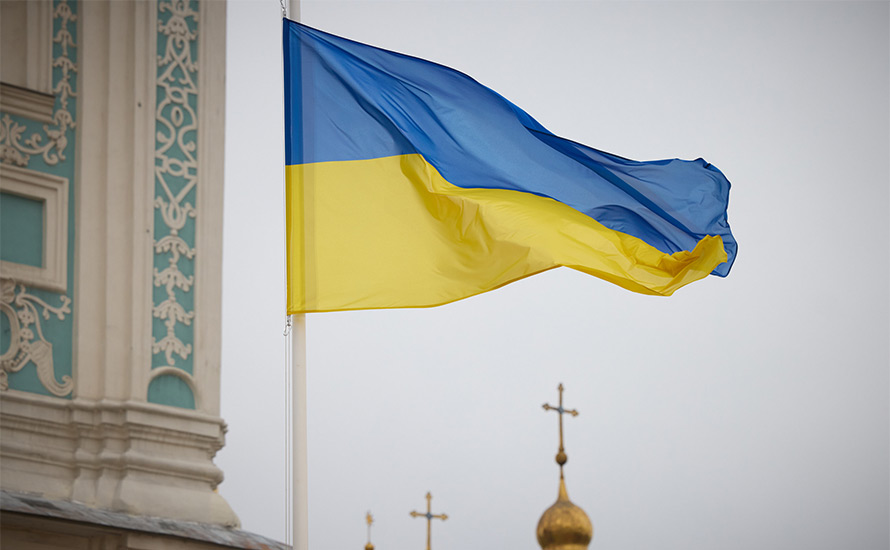Anders Åslund: Why Ukraine Can and Will Win
When it comes to winning wars, quality and effectiveness rather than quantity and bluster, are what counts – be it in relation to fighters, machinery or strategy.
All too often, one hears claims that, in the long run, Russia will win over Ukraine because it has a much larger economy and population. Historically, that is a flawed conclusion. Historical precedence suggests that Ukraine is more likely to win, so let’s take a look at the reasons why.
Motivation
This is the most important factor in a war. Ukrainians know why they are fighting. They are defending their nation’s existence. If they stop fighting, Ukraine will cease to exist as an independent state.
Russians, by contrast, don’t really know why they are fighting. Most seem to fight for fear of being killed by their own, while their families are supposed to be richly paid if they die. Some fight for their country, but many Russian soldiers are not even free. Russia’s prison population has declined from 420,000 to 260,000 during the war, with some 160,000 prisoners being thrown into the Ukrainian meat grinder.
Russia’s repressive dictatorship
Russia is a country where individuals such as author and journalist Vladimir Kara-Murza can be sentenced to 25 years in prison for speaking up against Russian President Vladimir Putin. Not surprisingly, the Kremlin is wasting Russian soldiers’ lives ruthlessly and Ukraine claims to have killed 320,000 of them. Even if the real number is only half that figure, i.e., 160,000, that would equate to ten times the Soviet losses in Afghanistan. This is hardly sustainable, though there has been little reaction from the Russian public as yet.
Ukraine’s democracy
That matters in war. Most Ukrainian soldiers, unlike their Russian counterparts, are volunteers. The Ukrainian military command is, on average, about two decades younger than the Russian military command and they behave far more democratically than their Russian colleagues. As far as possible, they try to spare the lives of their soldiers, and they pursue a much more decentralized – and more effective – command structure.
The last count I saw is that Ukraine has around 800,000 men and women under arms, while Russia has 420,000 soldiers in Ukraine. Ukraine has more, better and more motivated soldiers than Russia, and twice as many as Russia has in Ukraine.
Ukraine is where Russian arms are obliterated
Ukraine has qualitatively far superior Western arms, while Russia fights with substandard Soviet arms. Eventually, the US and Germany will deliver the arms Ukraine really needs, while Russia increasingly suffers from ever tighter Western technology export controls
According to the authoritative Stockholm International Peace Research Institute (SIPRI) Russian total arms exports have declined from $7.2 billion in 2018 to $2.8 billion in 2022. That figure has probably declined further in 2023 because no sensible arms importer wants substandard Russian arms any longer.
A big conclusion from Russia’s invasion of Ukraine is that its army and military-industrial complex are too centralized and too corrupt to do anything efficiently. Few of the Russian arms that Putin has boasted about are actually series produced, notably the modern tank Armata. Another weakness is that they have turned out to be ineffective, such as the hypersonic missile Kinzhal, though the cruise missiles Kalibr and Kh101 do work.
Historical precedence
It is strange that so many Westerners expect Russia to win in the long run. In the 1970s, the FNL defeated the mighty US in Vietnam. In the 1960s, Algeria defeated France in the long Algerian war. In 1967, still poor Israel defeated a broad coalition of Arab countries. In the Finnish Winter War of 1939-40, tiny Finland held off Joseph Stalin’s Soviet onslaught, etc.
Size has not turned out to be decisive in many wars. Large but poorly motivated countries usually lose wars against smaller and more motivated countries, especially if the aggressor’s objective is colonial. It would be strange if the authoritarian kleptocracy Russia were therefore to win in Ukraine. Precedence suggests that Ukraine is more likely to win this war than Russia.
Ukraine can win, but challenges remain
In order to win this war, it will suffice that Ukraine cuts off the two bridges joining Russia to Crimea, thus isolating the peninsula. That should mean victory. Ukraine does not need to seize Crimea. It is enough to cut off Russia’s supply lines to Crimea, rendering it indefensible. Ukraine has already opened Black Sea shipping, allowing exports of 5.6 million tons in two months, without any Russian agreement.
Still, Ukraine’s problems are great and must not be downplayed. Ukraine is currently suffering badly from the great confusion in the Republican party in the US. Donald Trump has emerged as Putin’s main ally. If anybody can break Ukraine, it is Trump rather than Putin.
Ukraine also suffers from a great confusion in Berlin on financing and arms deliveries. Ukrainian soldiers die in untold numbers because Russia has an enormous number of mines that Western slowness in arms deliveries has allowed Russia to lay out. Russia also has a lot of poor Soviet artillery, and this is to a large extent an artillery war.
Finally, while Russia’s air force is surprisingly weak, it has many more planes than Ukraine. Amazingly, Russia failed to take out the Ukrainian air force that has made sorties every day of the war, though always fewer than Russia’s.
Anders Åslund is the author of “Russia’s Crony Capitalism: The Path from Market Economy to Kleptocracy.”
This article was first published in Kyiv Post
